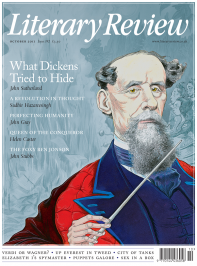Helen Castor
A Stormin’ Norman
Matilda: Queen of the Conqueror
By Tracy Borman
Jonathan Cape 297pp £20
Behind every great man, so the saying goes, is a great woman – or, in the case of the man known to posterity as William the Conqueror, a diminutive one. William’s wife Matilda of Flanders stood little more than four feet tall, but she loomed large, all the same, in the creation of his newly royal dynasty.
The first of her attributes that appealed to the young William, duke of Normandy, was her impeccably blue blood. Matilda’s father, Baldwin, was count of the wealthy and strategically significant territories of Flanders, and a descendant of the great Charlemagne, while her mother, Adela, was a daughter of the king of France. Her lineage promised to bestow both lustre and legitimacy on the bastard-born Norman duke, whose power, amid the brutal unpredictability of eleventh-century politics, had always depended principally on the strength of his sword-arm.
When they married, probably in 1050, William discovered that he liked more about his well-connected wife than simply her pedigree. Strikingly, and very unusually for a medieval ruler, he seems to have taken no mistresses and fathered no illegitimate children once he became a married man. During the

Sign Up to our newsletter
Receive free articles, highlights from the archive, news, details of prizes, and much more.@Lit_Review
Follow Literary Review on Twitter
Twitter Feed
Russia’s recent efforts to destabilise the Baltic states have increased enthusiasm for the EU in these places. With Euroscepticism growing in countries like France and Germany, @owenmatth wonders whether Europe’s salvation will come from its periphery.
Owen Matthews - Sea of Troubles
Owen Matthews: Sea of Troubles - Baltic: The Future of Europe by Oliver Moody
literaryreview.co.uk
Many laptop workers will find Vincenzo Latronico’s PERFECTION sends shivers of uncomfortable recognition down their spine. I wrote about why for @Lit_Review
https://literaryreview.co.uk/hashtag-living
An insightful review by @DanielB89913888 of In Covid’s Wake (Macedo & Lee, @PrincetonUPress).
Paraphrasing: left-leaning authors critique the Covid response using right-wing arguments. A fascinating read.
via @Lit_Review